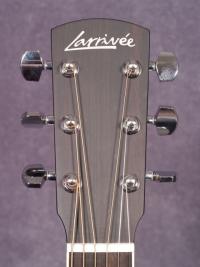Igloo's website says the lining is FDA polypropylene, though don't mention hot foodsGuess that will have to suffice
I don't use Igloo's coolers, so I'm not too familiar with what they're made of. The Rubbermaid and Coleman coolers I use are (supposedly) HDPE. I went through this many years ago with a PhD friend who specializes in plastics. he put my fears to rest. everybody else gets to make their own decision.
ETA: I dug up one of the emails I received from him...
"I forget whether the Rubbermaid and Igloo coolers are polypropylene or polyethylene but both are very similar plastics that vary mostly in there temperature ranges. Both are relatively low temp plastics and very safe for food contact. The only worry about using hot liquids in either cooler is that the plastic will soften at temps approaching 200°F.
I used to use a Gott cooler for a mash tun and used a false bottom with screws for feet to hold it up above the spigot. On one occasion, I did a decoction and after adding the boiling grist back to the cooler, there was enough wort at high enough temperature that when I turn on my circulating pump, the vacuum pressure on the FB caused the bolts to pull down through the bottom of the inner wall. I never had a problem with regular infusion mashing though. Eventually, the inner wall will buckle a bit from multiple hot water infusion.
I enjoyed reading some of the comments on the NB forum. You can post this there if you like. It's amazing the tack that a discussion can take when everyone works off of speculation and not information. PP & PE are only related to PVC because they are both polymers. From there, they are quite different. Many PVC's have plasticizers added to soften them up. It's the plasticizers that are liable to leach out and cause health problems. Unless you work in a PVC factory, the PVC itself is not worth worrying about. It's the Chlorine in PVC that makes it so potentially dangerous but primarily at processing temps, not use temps.
Cost has nothing to do with whether a polymer is safe or not. Most polymers are food grade. Many don't have the certifications that are necessary to sell them as food grade. PP & PE see so much food contact use that 99% of them are designed for food contact. Do you think that they'd let you put water in a non-food grade container (I know you don't Denny)? The polymers price is based on the cost to manufacture it. PP & PE are cheap because their chemistry is so simple. Think of them as a close cousin to candle wax. From there, most plastics are priced by their temp capabilities. I've worked with some that are over $50 a pound. They get lots of use are medical instruments and aircraft interiors.
The polyphenylene sulfide (PPS) that is common on March pump heads is the binder that sticks the teflon to your cookware (you didn't think they could get teflon to stick, did you?). The polysulphone of the quick connects is also used to make the interior panels of aircraft because of their low flammability and low smoke emissions. BTW, the vinyl hose we all use around our home breweries is PVC! I'm sure it has plenty of plasticizers in it to make it flexible."
Edited by denny, 30 December 2014 - 12:52 PM.












